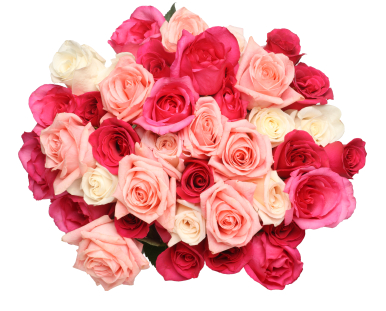
In the United States, Mother's Day is an annual holiday celebrated on the second Sunday in May. Mother's Day recognizes mothers, motherhood and maternal bonds in general, as well the positive contributions that they make to society.Although many Mother's Day celebrations world-wide have quite different origins and traditions, most have now been influenced by the American traditions.
As we celebrate this very special day today for all our mothers in the U.S., let us not forget that there are still many challenges that women are still facing in this world that needs our attention:
Gender and girls’ education
- Over 110 million of the world’s children, two thirds of them girls, are not in school.
- Of the world’s 875 million illiterate adults, two thirds are women.
Gender and violence against women and girls and child protection issues
- Data shows that at least one in every three woman is a survivor of some form of gender-based violence, most often by some one in her own family. [1999 Johns Hopkins global report]
- Girls between 13 and 18 years of age constitute the largest group in the sex industry. It is estimated that around 500,000 girls below 18 are victims of trafficking each year.
- Female Genital Mutilation (FGM) affects l30 million girls and women globally and places 2 million at risk annually. The prevalence of FGM remained stable at levels above 90 per cent in many countries during the last decade, with little improvement over the years.
- 1,400 women die every day from pregnancy-related causes, 99 per cent of them in developing countries.
- In Sub-Saharan Africa, a woman has a one in three chance of dying in child birth. In industrialized countries, the risk is 1 in 4,085.
Gender and HIV/AIDS
- Nearly a third of all adults living with HIV/AIDS are under the age of 25 and two thirds of them are women.
- In Sub-Saharan Africa, girls are getting infected faster and earlier than boys. In the 15 to 24 age group, two girls are infected for every boy.
Emergencies
- More than 80 per cent of the world’s 35 million refugees and displaced people are women and children.
- Emergencies puts women at risk of extreme sexual violence and abuse.
There are plenty more issues affecting women in the world, especially in Africa. Fortunately, there are also many organizations and services dedicated on fighting against these situations by providing special cares and services. Below are some of organizations that deals with issues related to African women and children:
<> GEORGES MALAIKA FOUNDATION - a non-profit 501(c)(3) organization dedicated to unlocking the potential of young African girls in the Democratic Republic of Congo (DRC) through education. - www.gmfafrica.org
<> African Advocates Against AIDS - a non-profit 501(c) using a culturally appropriate approach to creating HIV/AIDS awareness and education to the African and African-American community in the USA, because of the language and culture differences as well as helping the general minorities population access to prevention and treatment services. - www.africanadvocates.com
<> Oklahoma Missions of Love, Inc. - a non-profit organization dedicated to offering assistance to and alleviating the daily suffering of the poor and needy in African communities, especially those devastated by the HIV/AIDS epidemic, by being a voice for the hurting and forgotten. - www.okmissionsoflove.org
<> Reveil d'Afrique - a non-profit organization that organizes public cultural events whose goal is to attract media attention to the suffering children of Africa: dance, singing, beauty pageants, festivals and exhibitions in Europe and Africa.
As we celebrate mother's day today, we would like to send out a call for action to everyone to remember that together we can help provide a better environment and lifestyle for our girls and our women. Mother's day is not just about sending out cards and showing appreciation to women, but it is also about recognizing their troubles and participating on finding solutions to them. Happy Mother's Day!


